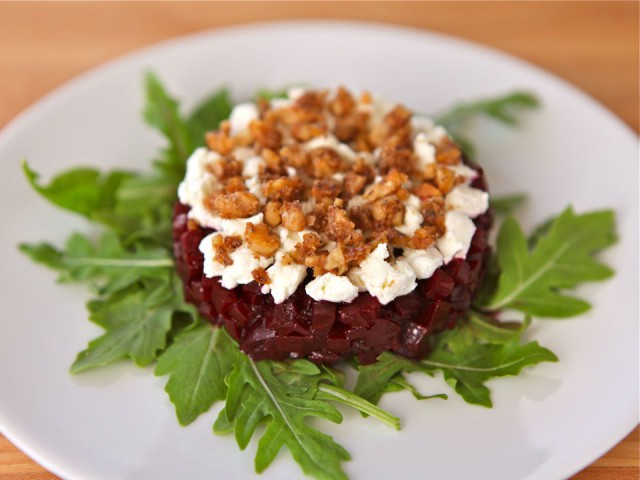Why Being More Open Will Improve Your Life
I’m not a fan of arguments. Sure, I enjoy healthy debate, but when discussions devolve into arguments where opinions interfere with facts and closed minds get in the way of honest curiosity, I want to throw up my arms and surrender.
No. I’m not a quitter. Most of the time, in fact, I’m a tenacious and passionate player. Though life is not a game, I struggle in the presence of quitters. That is, people who give up instead of opening up.
Ask yourself. Are you a quitter? Do you give up when your lack of knowledge, credible information, or interest prevents you from going—or growing—further?
To enjoy life and the endless riches it brings mandates an open mind. Anything else will close you off to experience and possibilities. Wandering through life with a closed mind will beat you into submission. You will lose.
Yet so many losers fail to see the hypocrisy of their indignant righteousness.
To be sure, I’m not talking politics here.
Recently the young African-American man who set next to me at the formal seated dinner at a high-profile event wondered what was on the plate that the tuxedo-clad server had put in front of him. He dared with his fork to poke at the carefully plated starter for what would be a five-course dinner. Instead, then turned to me.
“What is this?” he asked.
Detecting his culinary curiosity yet understanding that the stacked roasted beets topped with goat cheese and walnuts, served tartar style atop a fistful of arugula could confuse a casual diner, I answered, “That’s roasted-beet tartar.”
“Beets?” his loud, angry, sounding voice startled the other guests at our eight-top round table. “I hate beets,” he matter-of-factly announced while pushing the dish a few inches farther from him toward the center of the table, dropping his fork back to its place in the table setting.
Just as so many of our other likes and dislikes, our food preferences are personal. Often they begin to influence us at an early age. Yet, they are often learned—not even our own.
“You don’t like beets?” I asked, “Why not?”
“I don’t like the way they taste?” I sensed trepidation in his answer, thinking to myself that he probably liked less the idea of beets than their taste.
“When is the last time you tried them.”
I learned that, just a few days shy of his 26th birthday, Trevor had not eaten beets—in any preparation—for more than fifteen years, about the time his mother gave up trying to feed them to her children. I took a bite from my plate of the roasted beet tartar. Yum.
“These are unbelievable,” I insisted. The stack included golden, red, and rainbow beets.
“You can have mine then,” Trevor offered.
“Try them,” I suggested. “It’s been so long, you might like them.”
“No way, not gonna happen. Uh uh.” He was adamant. Trevor would not let himself sample even a small taste.
With the fresh flavors of the beets, goat cheese, and walnuts dancing in my mouth I suggested again that he give it a try. The more he refused, the more insistent I became. I went on a long soapbox rant of how when I was a kid I hated beets, salad, hamburgers, and onions. I explained that when I finally opened myself up to try these things later as a young adult, I realized how stupid I had been in my younger years.
I kept going, insisting he try.
“Okay, okay, okay,” Trevor whined. “If it means so much to you, I’ll try them.”
“No, Trevor. Try them because it should mean so much to you,” I equivocated.
He took a tiny forkful of the beets, pursing his lips gently, closing his eyes as he swallowed. Then he grabbed a larger bite.
“Wow! This tastes great!”
He finished his plate, and thanked me for my tirade—sort of.
I claim no responsibility for his newfound love of beets. All I did was make a small request. That Trevor should at least be open to the notion that tastes change, culture changes, and recipes change. The chef had cooked beets differently than his mom had, so many years ago.
Perhaps had Trevor not had this experience, today he would still believe he dislikes beets. Yet once opened to the fact that it was worth a try—to taste—a new world of flavor opened up to him.
Well beyond the dinner table, our ability to move past predetermined or prejudiced ideas can open up new worlds to each of us. This is true not only in our personal lives, but in business also.
Companies unwilling to try something because “we tried that before,” or “the competition tried it and failed,†or even, “we need more market research,†are self-limiting their range of possibilities. Often our intuition, our gut, will guide us if we are open enough to let it—and that’s where possibilities can be realized.
We can, however, mistake our old prejudices for intuition, for gut, and stolidly remain unwilling to be open to or to try something because we are afraid of the unknown. Fear may be the most powerful concept in marketing. Once, however, you understand that fear is a tool—a concept—you will find it easy to let your mind overpower that fear and instead be open and curious to the possibilities of the unknown.
Too many in this country are afraid of people that on the surface seem different. Yet, when we open up and take a chance—a taste—we will see that we all have more in common than we had supposed. It’s at that place, where our similarities connect, that we should start—and be open to each other.
Closed minds lose every day. Open minds win and open up all of us—and the world—to possibilities and to the pure and simple enjoyment of life.




